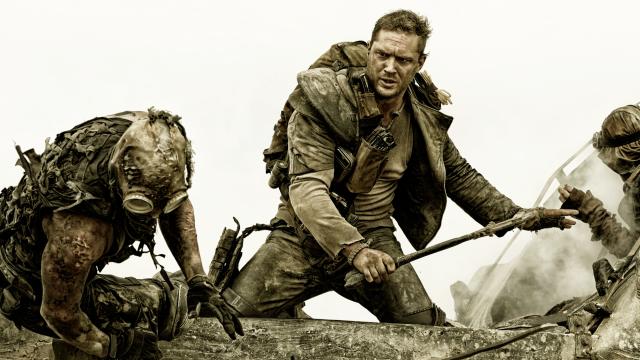The Apocalypse rules pop culture. Half the biggest literary novels these days are apocalyptic, and meanwhile The Walking Dead is a huge hit. Post-apocalyptic stories are what space opera was in the Space Age. But what are they about? Here are 10 types of apocalypses, and what they each signify.
Before we get started, a blanket observation — as we’ve said many times before, pretty much all apocalyptic scenarios are about wish-fulfillment on some level, even as they also explore our deepest fears. We all fantasize about being among the rugged handful of survivors, who immediately become the most special people in the world purely by virtue of still being alive. There’s also something alluring about the idea of no longer having to go to work or worry about Twitter drama, and having a simpler life.
That said, the wish-fulfillment aspect is pretty much the same in every apocalypse, whereas the fears being explored are somewhat different each time, even if common themes do crop up. With that out of the way, here’s our list:
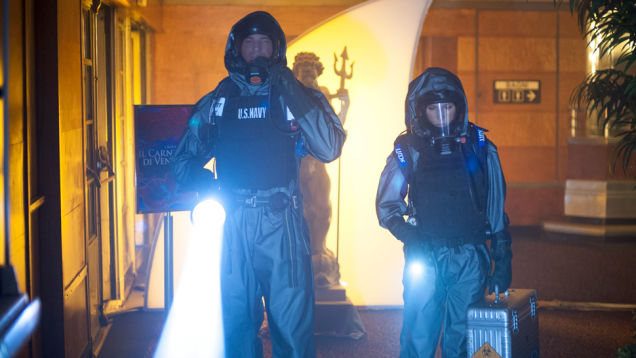
1. Plagues
This one is fairly easy — like a few others on this list, it’s based on a real-life fear, of global pandemics and runaway diseases, especially in the age of Ebola paranoia. But it’s also based on the dread of globalization, and the notion that crossing borders, and traversing the globe, has become much too easy. And diseases that start in the Third World can travel to Europe and the U.S. with alarming speed. Finally, there’s often a hint of paranoia about science, which either created the disease or can’t solve it.
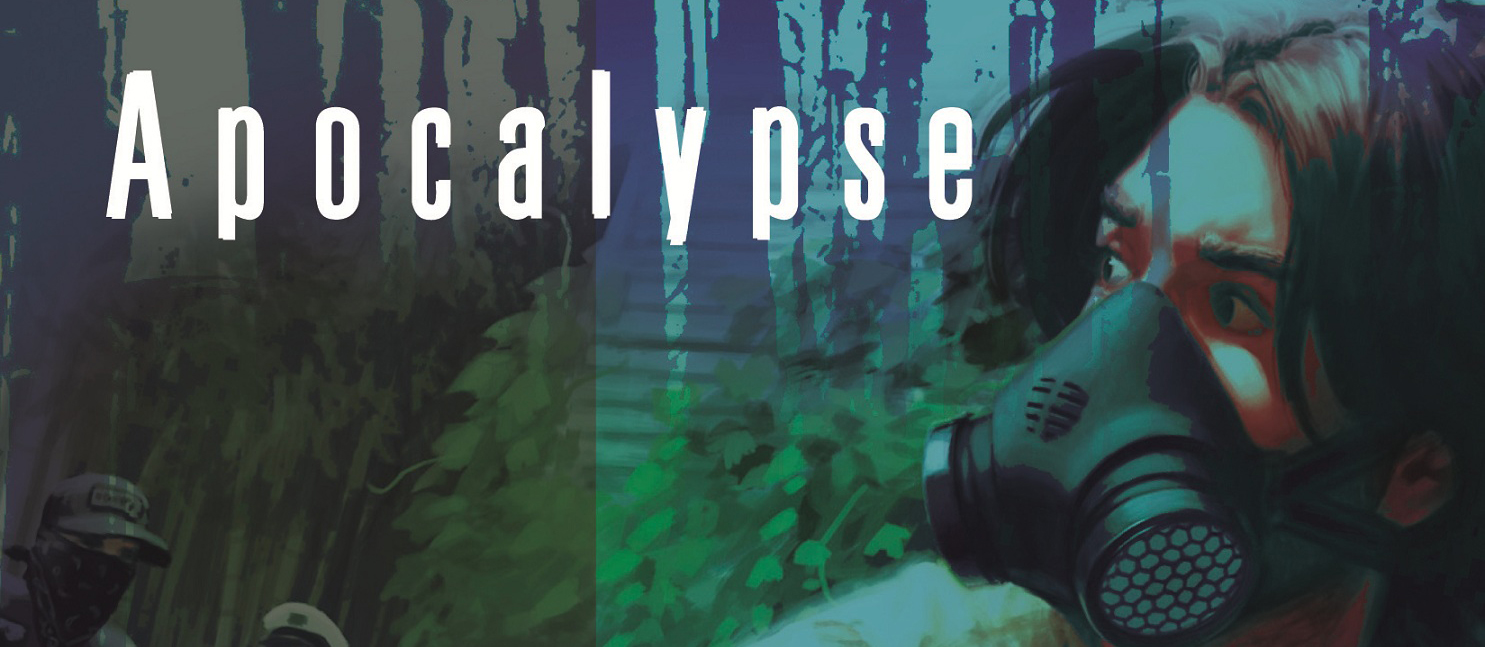
Image: Soft Apocalypse by Will McIntosh
2. Slow Apocalypse
Otherwise known as the story of social collapse and slow environmental decline. I’m a big fan of this kind of apocalypse, in which the frog just sort of boils very slowly as the water gets warmer and warmer. Basically, all of the stuff that seems like it might be unsustainable in our current society just sort of falls apart, including the complex economic systems. And everything that relied on cheap fossil fuels. And this is another one that’s easy to understand, since it’s directly related to our anxieties about the fact that Western, post-industrial society will inevitably collapse — although that’s not an apocalypse, it’s just the wheel turning as usual. This one often includes a plague of some sort, and is often the most likely to turn into a cosy catastrophe. But it can also turn into a Mad Max-kind of thing.
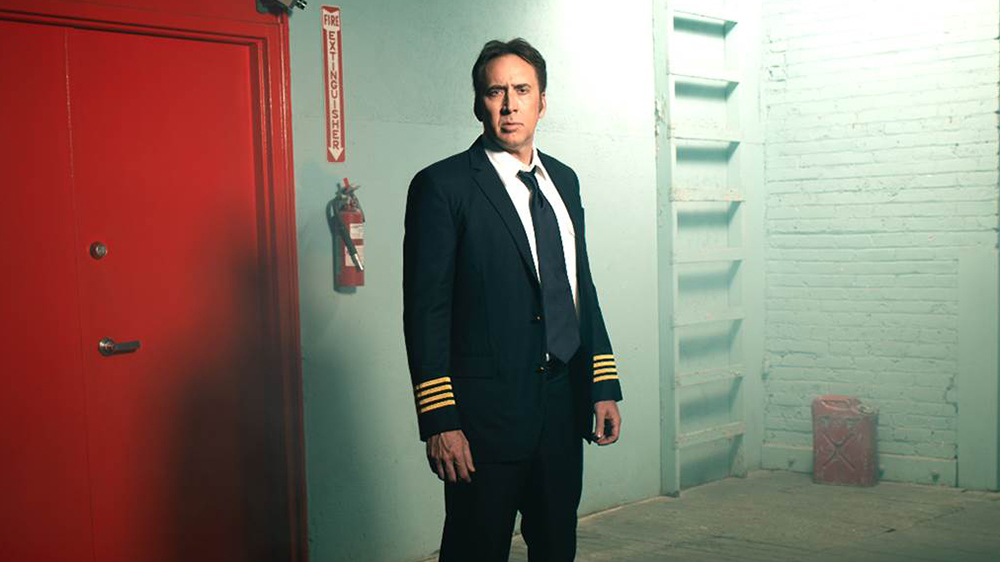
3. Certain People Die Or Vanish
Either a certain percentage of the population vanishes (Left Behind, The Leftovers) or one certain type of person dies, leaving everybody else unscathed (Y: The Last Man). Sometimes, this is a plague apocalypse, but often it’s just unexplained or the explanation is murky. In Kim Stanley Robinson’s alternate history The Years of Rice and Salt, the Black Plague succeeds in wiping out almost the whole population of Europe, leaving the world dominated by Muslims. There are also a ton of fictional gendercides, which often leave only men or only women alive. And these scenarios are usually about showing how indispensible the people who are gone are — without men, or without conservative Christians, the world falls to pieces. Also, they’re usually about exploring the dynamics within the group that’s still around, showing how they fare on their own and what this reveals about them.
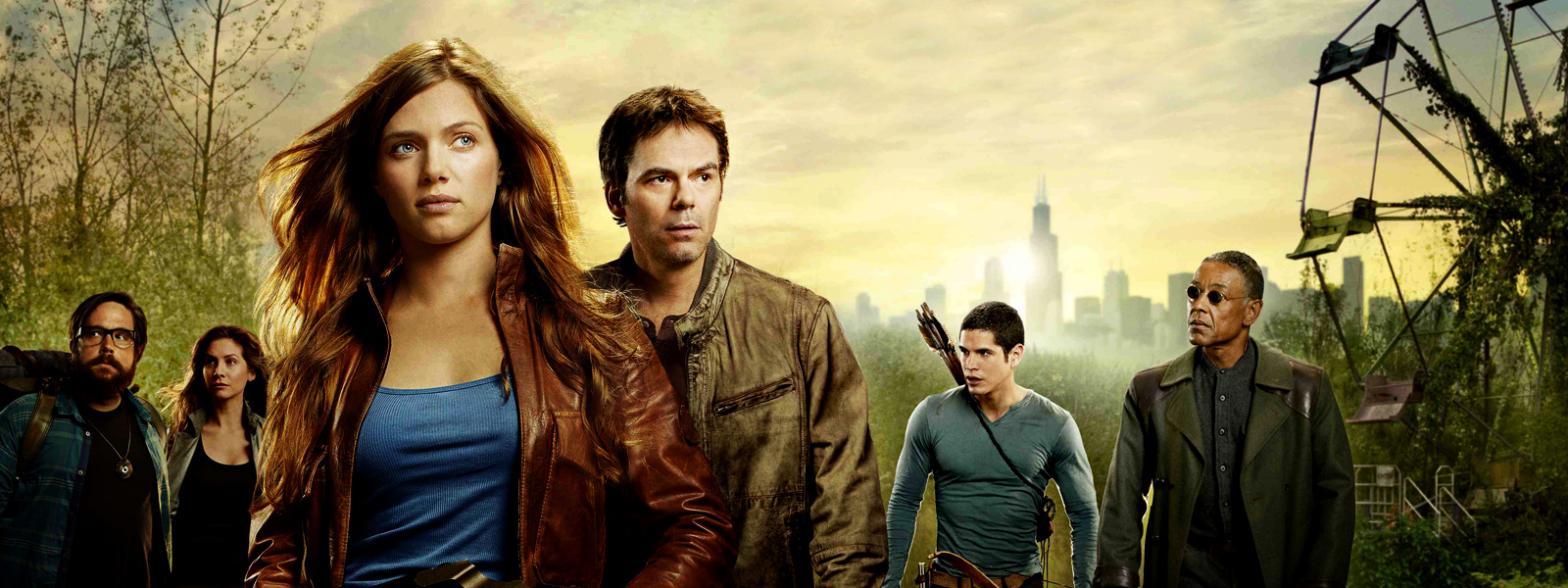
4. Technology Fails
Sort of related to the “slow apocalypse” scenario — but it often happens a lot more quickly. Our vaunted high technology suddenly crashes, due to an EMP or failure of the electrical grid. This genre starts with the E.M. Forster story “The Machine Stops,” but also includes the TV show Revolution and S.M. Stirling’s Dies The Fire. These sorts of stories often highlight how dependent we are on our technology — and how quickly our social expectations revert to an earlier, somewhat more barbaric, form without it. Lacking birth control and computers, people snap back into patriarchal modes. But there’s also often a kind of nostalgia, and a sense of relief that we’re returning to a simpler way of life. We can finally eat organic veggies!
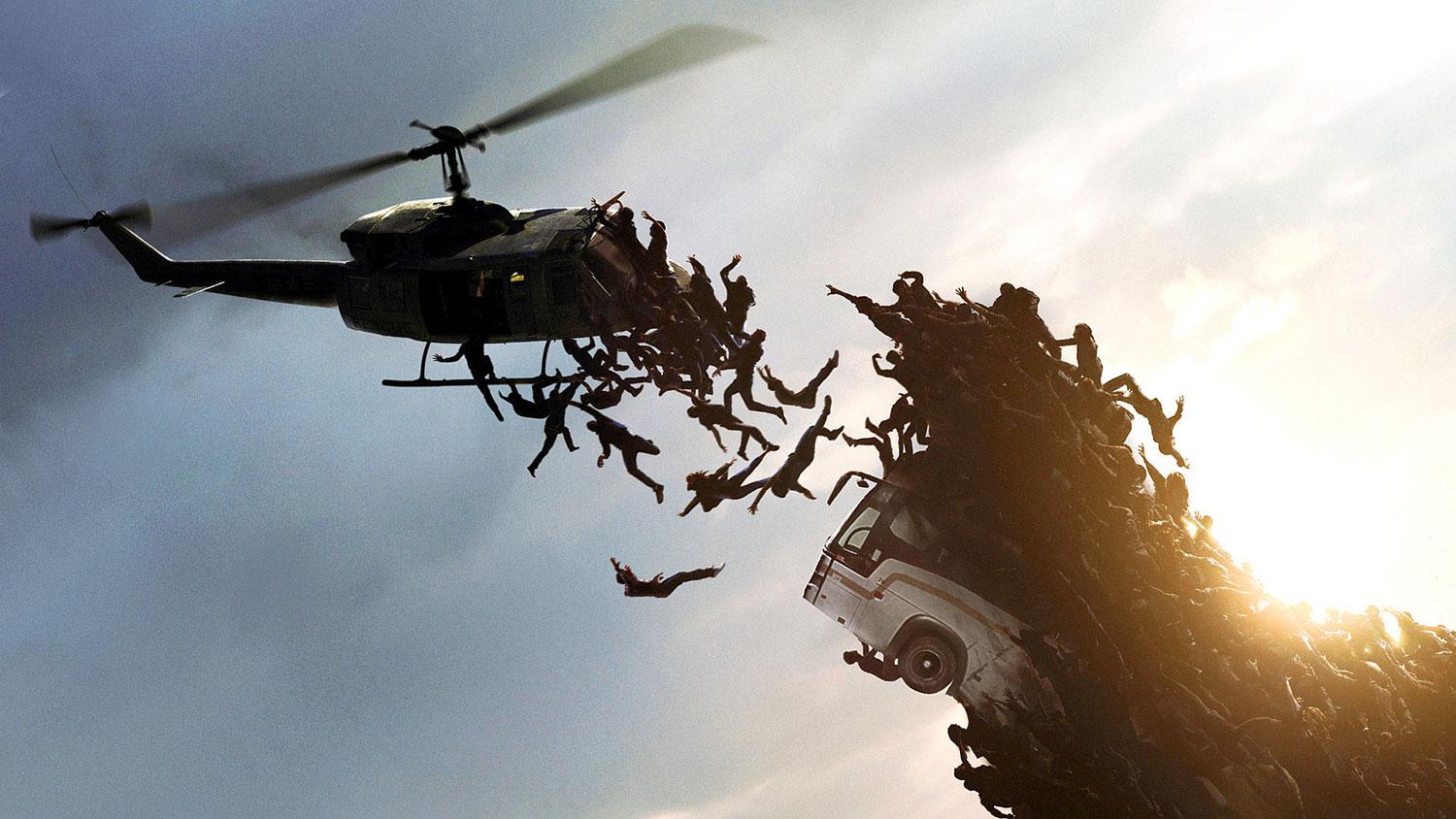
5. Zombies
The living dead rampage across the land, and anyone who dies or gets bitten usually becomes one of them. The survivors have to stick together, except that there’s usually some maniac who tries to create the ideal society or impose his/her will on everybody else. And zombies can be an easy metaphor for whatever you want — but they often represent the working class, or immigrants, or the underclass. They’re the faceless herd of humanity, who are mindlessly involved in consumption and labour, not like our heroes, who are true individuals. Sometimes, zombie narratives dwell on the nasty fantasy of killing our own friends and loved ones, but often the longer they go on the more of a faceless mob the zombies tend to become.
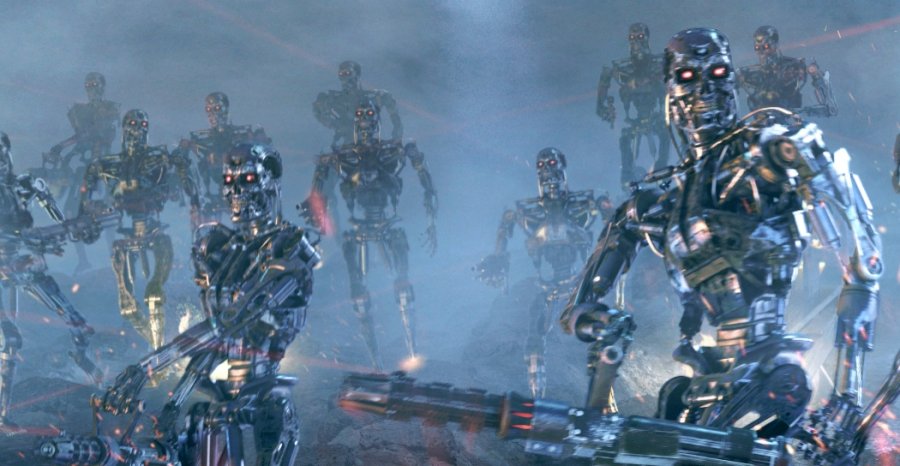
6. Robot Uprising
Our technology tries to kill us — not by failing, but by being too successful. Computers gain sentience and decide to wipe out the meatbags, or our gear starts malfunctioning in a homicidal fashion. (Or some hacker or bad guy turns our stuff against us.) These stories are usually pretty clearly about our fear that our tech is getting too smart, and that it might outsmart us soon enough. It’s not even the dread of artificial intelligence in real life, but just the notion that computers and other tech are just too incomprehensible, and we only just learned to program the DVR, and now our toaster is trying to tell us something. Your entire life is already controlled by Siri, and what if she turns malevolent? Etc etc. etc. Feelings of dependence and helplessness can easily turn into paranoia.
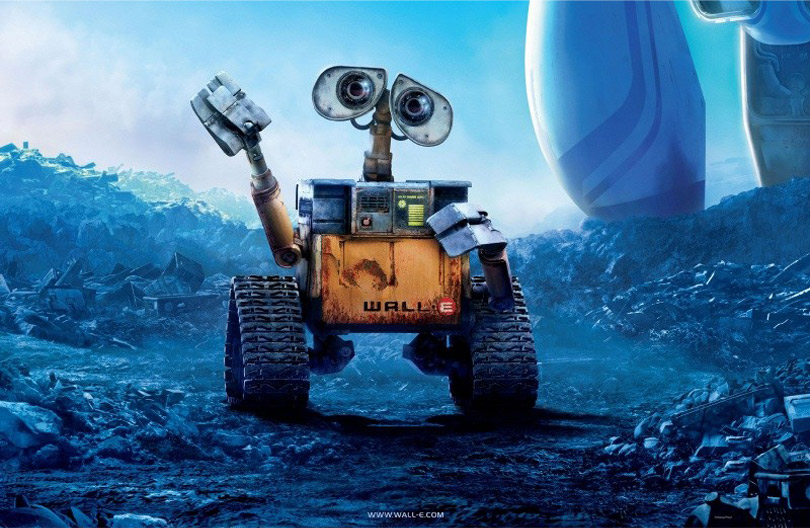
7. Humanity Abandons Earth
Not so much of an apocalypse as a futuristic space-colonization scenario — but it usually involves Earth being left for dead, or turned into a garbage dump. It’s often kind of an ecological collapse narrative (see #2 and #9) mixed with other kinds of disasters. In the rare post-Earth story, like Firefly, we never go back to Earth at all and it’s just mentioned as something in our rear-view mirror — a cautionary tale, about what happens when we humans use a planet up and suck it dry. But often, the point of the “we abandoned Earth” story is to return to Earth and see either: 1) What a shitty state we left it in, 2) the ruins of civilisation, and/or 3) how nature has reclaimed everything and made it pretty again. The story of humans abandoning our homeworld usually has a clear environmentalist bent — we had to leave because we fouled our own nest — but also usually a touch of Malthusianism. We broke our original planet because, as Joss Whedon’s Serenity says, we were too many.
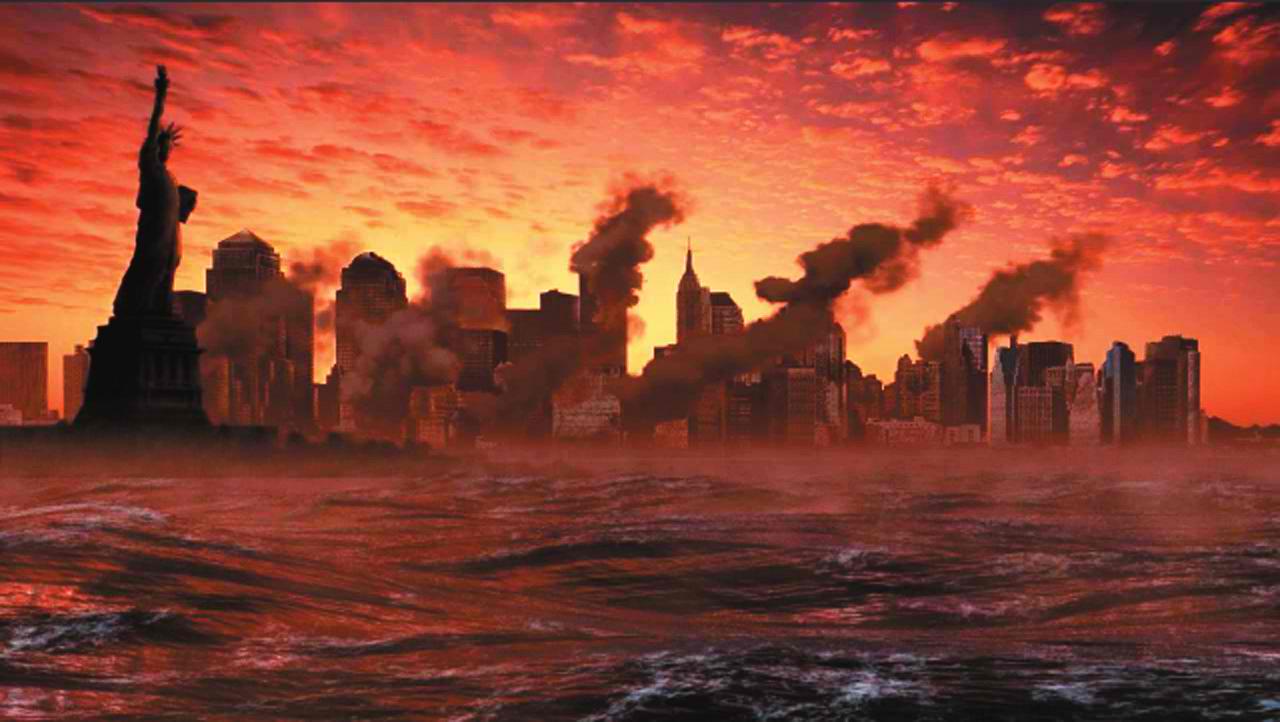
8. Nuclear Holocaust
Or actually, this could be subsumed under a larger category of “war that kills almost everyone.” The weapons of mass destruction that get deployed in said war are often nukes, but could also be biological, chemical, seismic or more outlandish. The point of this sort of apocalypse is usually not just that our technology has reached the level of near-total self destruction (with the last survivors possibly also on the brink of death) — but rather that humans are short-sighted and kind of awful. As Charlton Heston observes, we blew it up. Damn us all to hell.
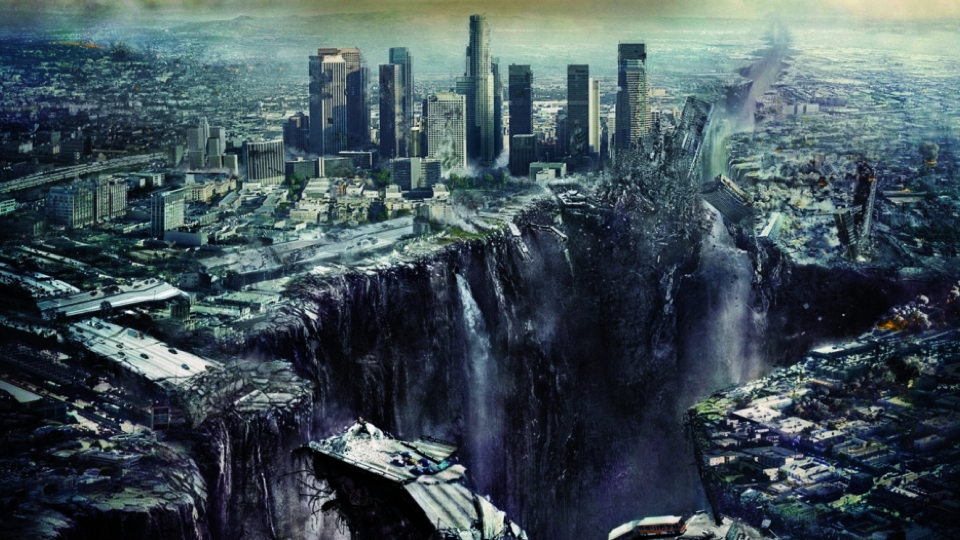
9. Natural Disasters
In other words, the Roland Emmerich category. This includes items from space (like meteors, comets, rogue planetoids, solar flares) but also volcanoes, tidal waves, global flooding, runaway neutrinos, ice ages, and so on. Occasionally, you’ll get a “natural disaster” story where it’s our fault, due to our irresponsible meddling — like The Core, for example. Or sometimes, these are an attempt to warn us about climate change. But a surprisingly high percentage of the time, these disasters are purely natural and beyond our ability to cause or control. Even so, the message of these disaster scenarios is the same either way — nature is huge and uncontrollable, and we humans are puny and arrogant. We can be smushed like bugs at any time, and we’re fools to think otherwise.
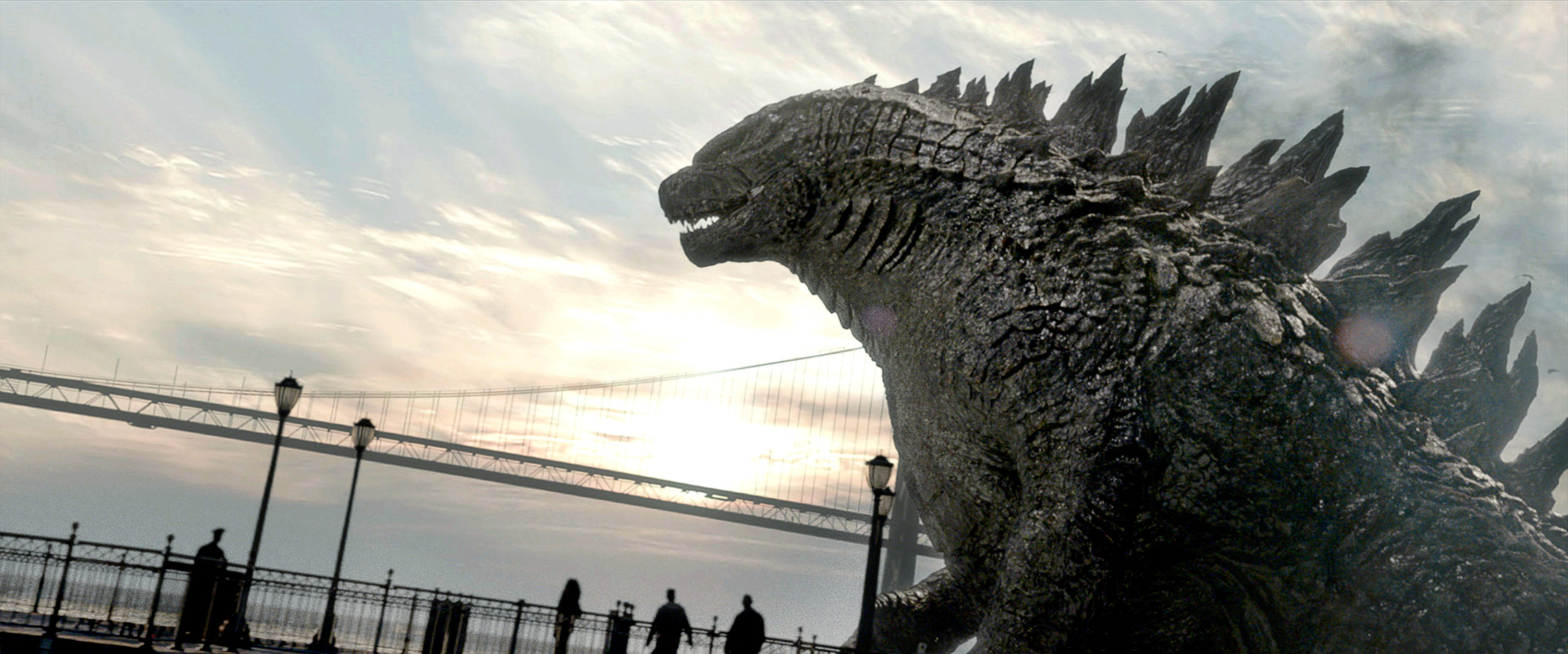
10. Monsters and Aliens
Either giant monsters rise up, like Godzilla, or alien invaders descend on us and lay waste to everything. Either way, we’re basically outmatched by creatures we can’t destroy, or even understand. These attacks are often somewhat similar to plagues, in that they’re merciless and can’t be reasoned with — but they’re also like natural disasters, because we get to see everything get trashed. And they definitely play into our fear that we might not be quite as in control as we think we are. But alien invasions, and to a lesser extent giant monsters, also speak to our fear of being on the receiving end of colonialism. For Europeans, it’s a scary fantasy of what it would be like to have the tables turned and be the colonised, instead of the colonizers. What if our war machines and mechanisms of exerting control finally met their match, and we were the ones with less fire power? (This is based on an oversimplified view of colonialism, but one with a lot of popular acceptance.) Also, the giant monster attack lets us fantasize about throwing one hell of a temper tantrum, as we identify with a Kaiju letting loose on a city full of puny humans.
